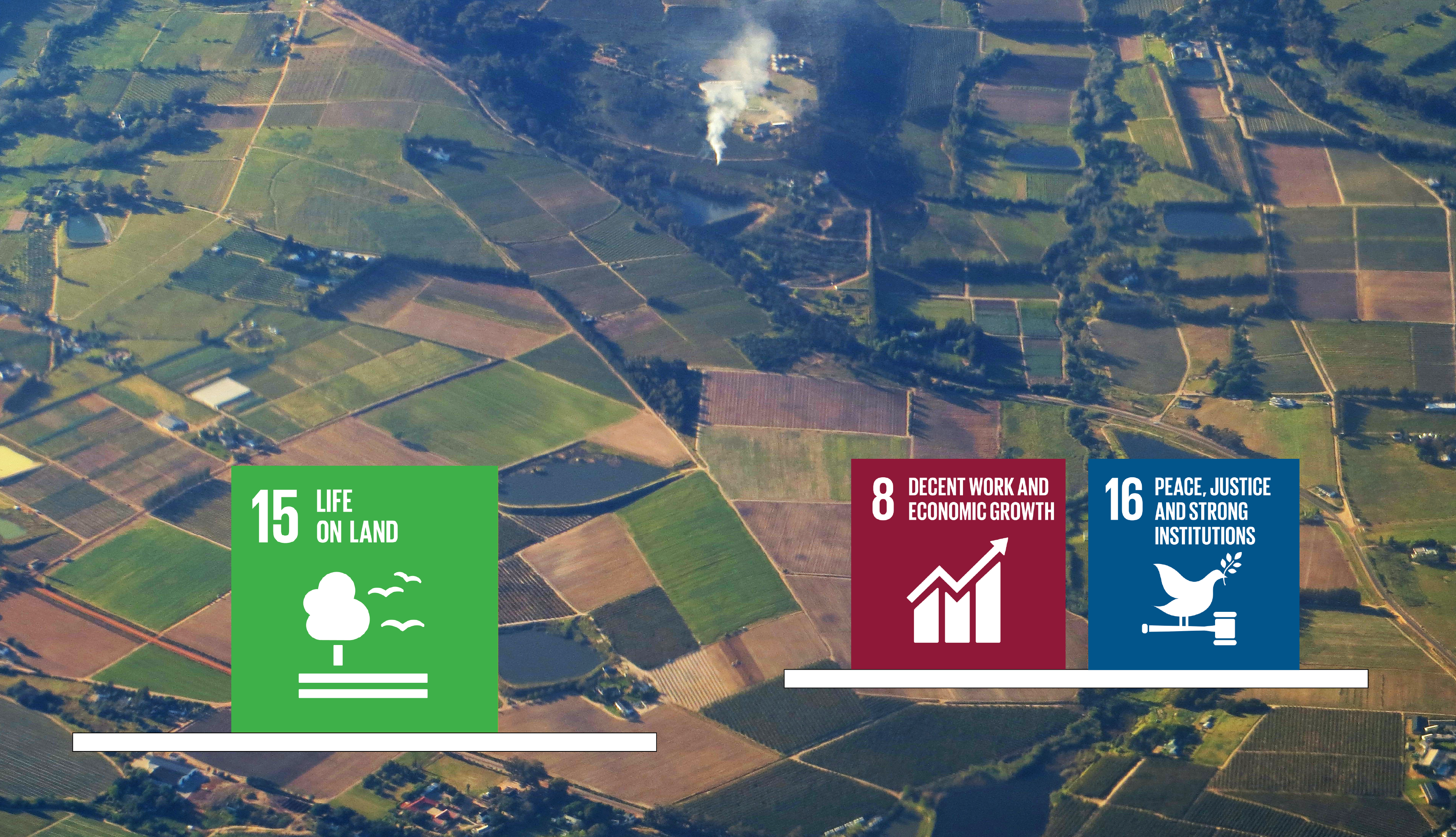COURSE DESCRIPTION
How to increase nature and biodiversity and create new jobs and what is the role of planning and institutions?
Primary SDG 15, secondary SDG 16 and SDG 8
SDG 15 – Protect, restore and promote sustainable use of terrestrial ecosystems, sustainably manage forests, combat desertification, and halt and reverse land degradation and halt biodiversity loss
SDG 16 – Promote peaceful and inclusive societies for sustainable development, provide access to justice for all and build effective, accountable and inclusive institutions at all levels
SDG 8 – Promote sustained, inclusive and sustainable economic growth, full and productive employment and decent work for all
Problem Based Learning Methodology
1. Problematize to raise the analysis
2. Group work on data collection, analysis, presentation and mapping.
3. Dialogue with local interest groups during individual classroom
PROBLEM STATEMENT
Deforestation and forest degradation, continued biodiversity loss and the ongoing degradation of ecosystems are having profound consequences for human well-being and survival. The world fell short on 2020 targets to halt biodiversity loss. The COVID-19 pandemic has shown that, by threatening biodiversity, humanity threatens its own survival. While great efforts are being made to expand sustainable forest management, increase coverage of key biodiversity areas and sign up to legislation and treaties for protecting biodiversity and ecosystems, much more needs to be done to put the health of the planet at the centre of all plans and policies.
Working questions:
- What is the role of agriculture for local jobs and economy compared with the impact on nature and biodiversity?
- Is it possible to create income from natural and protected areas?
- What are the local/regional agricultural activities and land use?
- What is the distribution between traditional and organic farming activities?
- What is the size and type of natural areas and protected areas?
- What is the income generation, number of jobs and farm size?
- What is the income generation and number of jobs in nature tourism and local products?
- What is the balance between monoculture and biodiversity?
- What are the environmental effects of farming?
- What are possible alternative income generation from farm land and nature?
- What are the rules and regulations on land use and nature protection?
- Are there local conflicts on land use?
SHARED CLASSROOM
The activities can be divided in different shared session.
Sessions
Week 1
- 1 or 2 h Individual classroom (Introduction on SDGs and sustainability)
- 1 or 2 h shared classroom, groups-team building
Week 2
- 1 or 2 h Individual classroom: Teams investigations
Week 3
- 1 or 2 h Individual classroom (preparation for presentation)
- 1 or 2 h shared classroom, team presentations
Week 4
- Guideline for comparison
- 1 or 2 h shared classroom, team comparison and presentations, student products
The class can be divided in mixed working groups from both countries or only from their own.
Lessons:
Shared Classroom 3
Individual Classroom 3 or 4
Technology needed:
– Internet connection
– A device to connect, a pc, cellphones or tablet
– Each participant has his/her own device and headphones if possible
LEARNING OUTCOMES
During the project, the students can develop different kind of products:
– Videos,
– Brochures,
– Power point presentations,
– Summary document with recommendations for action
– Articles to be disseminated on local media
– School exhibition with maps on land use, statistics, conflict areas and solutions
For the full Teaching module click on the green button above.
Course Features
- Lectures

